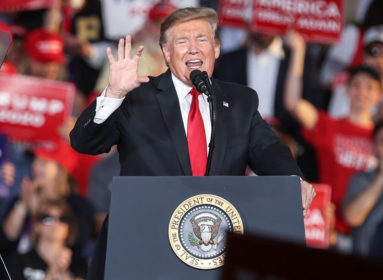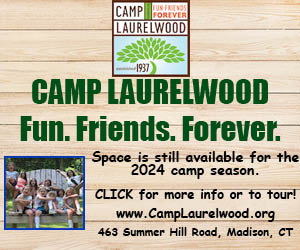Filmmaker Tells the Tale of “Kinderblock 66”
By Judie Jacobson
In the last bloody months of World War II, the Nazis targeted Jewish children who arrived at Buchenwald in death marches from the east. Released in 2012, “Kinderblock 66: Return to Buchenwald” is the story of four young boys – now aging men – who were among 1,000 Jewish orphan boys imprisoned in Buchenwald, where they were hidden in plain sight and saved from certain death by the camp’s Communist prisoner underground. The film will be screened at the Mandell JCC Hartford Jewish Film Festival on Monday, April 8.
In April 2010, 65 years after liberation, the four now elderly men returned to Buchenwald to honor the memory of friends and their guardian angel, Antonin Kalina, the Czech resistance member who oversaw Block 66.
Steven Moskovic accompanied the men on their return journey and produced the film that tells their story. An award-winning filmmaker for 25 years, Moskovic’s credits include the films “The Diary of Immaculee,” “Homeland,” and “Jackie Mason: Fearless and Unabashed,” among others, and projects for the History Channel, ESPN, the Discovery Channel, Court TV and PBS. He is also the father of Alex Moskovic, one of the Buchenwald “boys” featured in the film.
The Ledger spoke recently with Moskovic about the making of “Kinderblock 66” from his office in New York.
Q: As the son of one of the Kinderblock 66 “boys” – now elderly men – is this a story that you grew up with? It is something your father talked about from the time you were a young boy?
A: Actually, I didn’t really know this story my whole life. I knew from the time I was a child that my father had been in concentration camps. But I didn’t know many of the details about that period of his life. I absolutely did not know this story of the Kinderblock until June of 2009. When my father was asked to speak and give testimony for reparations being given by the German government at a conference in Prague, I decided to join him. When the conference was over, we spent a few extra days in Prague and on one of those days he said, “Buchenwald is about four hours away. Would you like to go?” We had gone about 10 years earlier to Auschwitz-Birkenau, but he never wanted to go to Buchenwald. I don’t really know why – except that he always said there was nothing there except perhaps for some sort of monument. In fact, that wasn’t true. Really the entire camp is there, except for the wooden barracks, which was dismantled.
So, we went and we were given a tour from the historian there. While we were walking around he said, “Next year – which would be 2010 – is the 65th anniversary of the liberation and we’re having a big commemoration. Are you coming?” We told him that we didn’t know anything about it. And he said “We’ll have to get you an invitation.” They tried to keep a list of all the survivors who are still alive, but for some reason we were not on the list.
Q: At what point did you realize you had the makings of film?
A: Well, we were sent an invitation, and it got me thinking about what a great opportunity I would have, with all these survivors from all around the world in one place, to bring a camera and interview them. When I got back I started talking to some of my colleagues about it. I got a lot of people on board saying ‘you know, that sounds like a very interesting story, I’ll go with you.’ There was no budget, but people didn’t care, they just wanted to come and to be involved. We ended up going over with three cameras. We came up with an idea to do a film but we weren’t at all sure exactly how the film was going to lay out. It kept changing as we shot more and more. The 65th anniversary was one of the first things we shot. From there we started going through all the material and began realizing things we didn’t have and needed to build the story and to take the story beyond this event. We continued shooting for another year at least. The whole process was about two and half years.
Q: How were you able to locate the men who had been Kinderblock 66 boys?
A: We found them through Ken Walzer who is writing a book on the subject [Ken Walzer is director of the Jewish studies program at Michigan State University whose recent research is on Buchenwald]. There were about 50 of these survivors at the 65th anniversary event. And there were several GIs – American soldiers – who had liberated the camp. These men are in their 90s now; so there are less of them still around. Ken had the names of the survivors. In the past couple of years he’s actually found a couple more. Somehow they come up – people read something and pass along their names to him, or they see the film or read about the film and contact me.
I didn’t want the film to be American-centric, so to speak. We knew we needed three or four survivors to make the story interesting, and I didn’t want them to all be living in America. I wanted an American, a European, an Israeli, and an Australian. There is a group of Kinderblock survivors in Australia, but at the time none were coming to the 65th anniversary event so it didn’t work for our storyline. So, we ended up with two from Israel. Ken narrowed it down for us to about 10 or 12 men whom he thought could convey their story well and we contacted them. I had a producer with me who spoke German, so we were able to contact some of the survivors in Germany; and I had a producer with me who speaks Hebrew, so we were able to contact some of the survivors in Israel. Ultimately, we settled on the four who are in the film, and I think it was a good choice.
Q: Did your father know any of these men from Buchenwald and is he in touch with any today?
A: In Buchenwald, the boys really only associated with people they could trust, which meant either it would have to be a brother or a cousin, or even someone from your village or town. And so, no, he didn’t know them from the Kinderblock. But now that they’ve reunited I’d say at least once a month he actually Skypes with Naftali. They speak Hungarian to each other.
Q: Today, there are so many stories out there about the Holocaust. What do you think makes this particular story so compelling; that sets it apart and makes it a story that needed to be told?
A: Well, we don’t focus on the torture and the pain – of course, it’s talked about because you can’t get away from that, but we talk more about how they got through that and were able to rebuild their families and make successful lives for themselves. So, I think in a sense it’s an uplifting story. Also, we talk about communists and the role they played in saving these boys. Especially in this country, the word “communist” certainly has a negative connotation. But these were communists who were very dedicated people and did a good thing. They saved children. It dispells the myth of the communist as someone who is necessarily evil.
Q: In making this film, were you able to separate Steve Moskovic the son from Steve Moskovic the filmmaker?
A: It was a very emotional experience. Afterwards, I found from talking with the guys who came with me that we all had the same emotional feelings. Obviously, I knew that members of my family had died at Buchenwald — my grandfather and an uncle – my other relatives were killed at Birkenau.
I did not get involved with interviewing or filming my father because we didn’t want him to not say something to shield me from it. So, I would lay out what we needed but I did not go around with him. We had other people do that.
Q: Is there any one particular audience that you’re trying to reach with this film? What message are you trying to get out?
A: At the time we were making the film we really didn’t have a particular audience in mind. We wanted to tell the story and there wasn’t really anybody we were focused on. Of course, we knew that in New York and probably Chicago, South Florida, and the Los Angeles area, Jews are going to go see this movie. But It turns out that in certain places many Christians have come to see it and they’re very moved by the film. They ask a lot of questions and we’ll spend an hour or more afterwards just talking with them. Some of them were aware of what happened a little bit, but they weren’t aware of the full story and they’re in shock. They’re amazed by the details and the fact that after going through what they did, these men were able to go through to still live normal lives; to be functioning people.
Now in looking at it, what we’re trying to focus on is showing it to kids. By that I mean kids from about 14 or 15 years of age on up. Middle school, high school, universities. I think those are the people who need to carry this on. My father lives in Florida now and he speaks to a lot of school groups – about one a week.
Q: Was this your first Holocaust-related film?
A: Yes. I’ve done some other Jewish films for organizations like the American Jewish Committee, and a few documentaries and a couple of independent features.
Q: Will you be in Hartford for the screening of Kinderblock 66?
A: Yes, I’ll be there. My father will be there, and at least one of the other producers will be there. The screening will be followed by a question-and-answer period afterwards.
Kinderblock 66: Return to Buchenwald” will have a screening for teens at the Hartford Jewish Film Festival on Monday, April 8 at 7 p.m. at Beth El Temple in West Hartford, followed by a Reel Talk. It will also be presented by Avon High School and The Center for Human Rights at 8:45 a.m. Teachers who wish to bring student groups to this special screening should contact Stuart Abrams, sabrams@avon.k12.ct.us or call (860) 404-4740.
The Mandell JCC Hartford Jewish Film Festival will be held April 4 – 15. For more information and a full schedule of events visit www.hjff.org.
Comments? Email judiej@jewishledger.com.







 Southern New England Jewish Ledger
Southern New England Jewish Ledger















